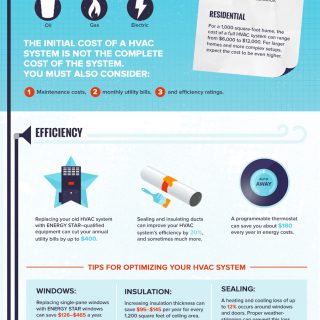Checking Out The Ecological Advantages Of Warm Pumps - A Sustainable Heating Service
Checking Out The Ecological Advantages Of Warm Pumps - A Sustainable Heating Service
Blog Article
Developed By-Barry Barrett
In a period where sustainability and energy efficiency are extremely important, numerous organizations look for environment-friendly heating solutions. One such remedy is the heat pump.
A heatpump extracts the warm in its surroundings and pumps it into your home, causing one of the most reliable environment-friendly central heater around. This process additionally creates absolutely no greenhouse gas emissions, making it an extremely lasting modern technology.
Energy Effectiveness
Heat pumps are really energy effective and require little upkeep. They make use of less power than other heating systems and are by far the most eco-friendly. They work well with rooftop solar and can usually spend for themselves in energy savings alone.
They can additionally supply cooling, which is fantastic for garage workshops, attic room hangouts and reward rooms, and home enhancements without extending the existing ductwork. They can also be used for retrofits in existing homes with hydronic (water-based) distribution systems such as reduced temperature radiators or glowing floors.
Look for models with SEER and HSPF rankings that meet or exceed copyright's minimum requirements, as well as the standards in your region. Greater ratings indicate greater efficiency, which conserves you money in the long run and reduces your carbon impact. You may even receive rebates and rewards! The best units are those with a ground warm exchanger for added performance. These devices can soak up thermal power from the ground during the wintertime and essence it in the summer.
Reduced Greenhouse Gas Emissions
Heatpump work on electrical power and essentially transfer warm from the air, even when it's cool outside. They are able to draw out the cost-free warmth entraped in air fragments and relocate them inside, minimizing moisture while doing so.
Contrasted to gas heating systems, modern-day heat pumps make use of less than one kilowatt of power per kilowatt of heating power they produce. This makes them the most energy reliable heating alternative available with a COP (Coefficient of Efficiency) of four or more. By lowering the requirement for fossil fuels, heatpump help reduce greenhouse gas emissions and cut various other significant air contaminants.
Structure decarbonization is a global crucial, and the heating and cooling industry is a crucial vehicle driver of that process. Whether simply click the following internet site making internet absolutely no dedications, policy makers establishing emissions limitations, or lessees demanding greener spaces, electrical heat pumps are being recognized as a crucial solution. They are a cost-efficient method to minimize carbon discharges by eliminating the demand for fossil fuels in structures.
Convenience
Heat pumps can be made use of in lots of sorts of homes and buildings-- with or without air ducts. They deal with hot-water radiators, air-conditioning and programmable thermostats. They can replace furnaces or be mounted in new houses. They can work on solar panels, geothermal systems or even area heating sources like wastewater.
They're great at supplying more warmth per energy unit. As an example, an air-source heat pump creates approximately 3 or even more heating units from each electrical power unit it eats.
Obtaining the most from your heat pump will certainly depend upon your environment zone and quality of insulation. Seek models with power STAR scores and contrast their SEER or HSPF specifications. In warmer environments, concentrate on SEER; in colder areas, think about a system with a higher HSPF ranking. Furthermore, invest in air securing and insulation to decrease the lots on your heatpump. That will certainly improve energy effectiveness and assist you reach your Web Zero objectives much faster.
Biomass Boilers
Biomass central heating boilers use timber pellets, chips or logs to produce warmth and hot water. They are an excellent choice for off-grid residential or commercial properties or those that intend to get off the gas grid.
As https://caidenizorn.activoblog.com/29836079/the-future-of-home-heating-how-heatpump-modern-technology-is-progressing heating system, biomass can give sufficient energy to keep your home warm all the time without the normal heat drop off of other renewable innovations. They can likewise be used along with solar panels to increase savings and gain from RHI repayments.
A disadvantage of these systems is the in advance cost and routine fuel distributions. Typically, pellets will certainly require to be blown right into a gas store utilizing a vacuum system or they can be manually fed into the central heating boiler with a hopper. Logs are typically self-sourced from neighboring timberland or gotten in bulk. As well as this, they need hand-operated loading and may require cleansing regularly.